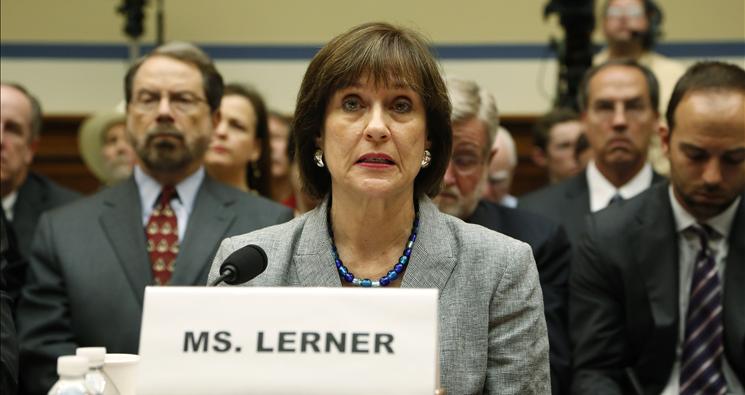Lois Lerner Loves it When a Plan Comes Together
With all due apologies to Hannibal from the A-Team, I couldn’t help but think of his favorite quote when the Daily Caller reported that “new” IRS free-speech regulations were in the works for some time — perhaps even as early as 2011. The plan to suppress the Tea Party and use the IRS to functionally overturn Citizens United v. Federal Election Commission is coming together quite nicely.
Can we finally retire the official IRS narrative of the scandal? In what may go down in history as the least sincere apology ever delivered, on May 10, 2013, Lois Lerner — then director of exempt organizations — disclosed IRS misconduct, apologized, then provided a series of excuses and justifications for that misconduct that the IRS maintains to this day. ACLJ chief counsel Jay Sekulow (Full disclosure: I’m a senior counsel at the ACLJ, and we represent 41 conservative groups from 22 states in litigation against the IRS) testified today before the House Subcommittee on Economic Growth, Job Creation, and Regulatory Affairs. Here’s a key portion of his written testimony (footnotes in link):
The initial IRS defense turned on three fundamental misstatements: First, that the misconduct was localized to low-level employees in one IRS office, in Cincinnati.[5] Second, that the misconduct was unrelated to the political point of view of the targeted groups but was merely a misguided effort to respond to a “big increase” of 501c4 applications.[6] And third, the misconduct had been identified and stopped. These assertions were all false.[7]
The misconduct was not localized in Cincinnati. From the moment that Lois Lerner made her apology, at the ACLJ we had in our possession letters from IRS offices in California and from IRS headquarters in Washington, D.C.[8] In addition, we possessed letters signed not just by “low-level” employees but by high-ranking IRS attorneys and officials from Washington, including letters signed by Lois Lerner.[9]
Additionally, we were able to quickly determine that there was no “big increase” of applications at the time the targeting began. In fact, there were fewer 501c3 and 501c4 applications in fiscal year 2010 – when the targeting began – than in fiscal year 2009.[10]
We also knew that IRS misconduct had not stopped but was instead ongoing. In fact, one of our clients received additional intrusive questions just weeks before Lois Lerner’s apology, and several of our clients were still waiting – years after submitting applications – for IRS approval.[11] Some still wait to this day.
Now we know the targeting — which would have been difficult to continue indefinitely — was being supplemented by a draconian ”off plan” (undisclosed) regulatory initiative that would ultimately render the targeting effort superfluous.Speaker Boehner and Minority Leader McConnell are precisely correct when they write that the proposed IRS rules “would redefine political activity so broadly that grass-roots groups all across the country will likely be forced to shut down simply for engaging in the kind of non-partisan educational activities the 501(c)(4) designation was designed to support.” Expect these new regulations, if finalized, to face an avalanche of litigation.
The contours of the IRS response to the Tea Party are now clear: target, delay, and regulate. Target tea-party applications for additional scrutiny, delay approvals through the use of voluminous, intrusive questions and investigations, then regulate exhausted, approved groups into impotence through new rules that expand the definition of political activity so far beyond the bounds of common sense that even the ACLU is outraged.
Yes, the Obama administration’s plan is coming together quite nicely — unless and until it’s checked in federal court.
